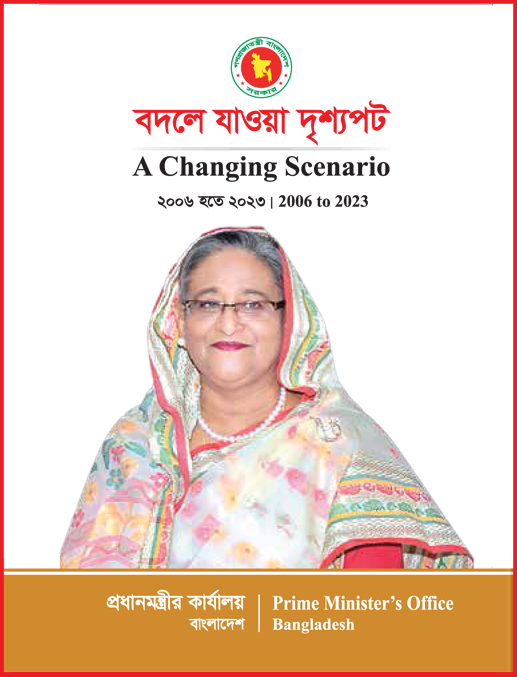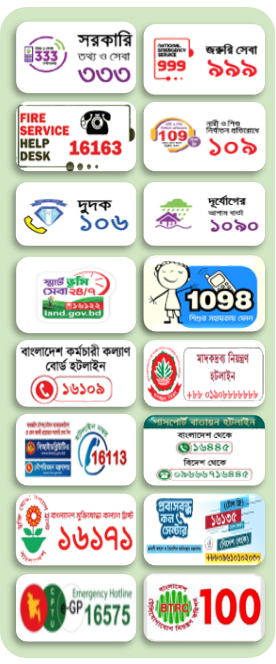ইতিহাস ও কার্যাবলী
পটভূমি
About Fish Inspection and Quality Control Dhaka
The office of Fish Inspection & Quality Control (FIQC), Dhaka established in 1980. FIQC Dhaka is the official control authority for safe and quality fishery products to the consumers. This official control is based on following acts, rules, guidelines/manuals etc.
Mandate
To ensure safety & quality of fish & fishery products and issuance of health certificates.
Quality Policy
The Fish Inspection & Quality Control , Dhaka is committed to good professional practices and to the quality of its performance according to provisions provided by the “Fish & Fish Product (Inspection & Quality Control) Rules, 1997” Amended 2008, 2014 & 2017. Regional Competent Authorities (RCA's) updates its resource's & skill by proper training as per needs and committed to continually improve the effectiveness of the management system.
Functions
FIQC Dhaka is the official control authority for ensuring safe and quality fish & fish products to the consumers. This official control is based on the acts, rules, guidelines & official control protocol. The major functions are:
- Licensing of the fishery establishments
- Monitor the compliance of fishery establishments
- Monitor supply of safe and quality products to the consumers
- Certify fish and fishery products for export
- Conducting awareness and training programs for ensuring Food Safety and Quality Issues at stakeholders in the value chain
- Evaluation of establishments
- Implementation of HACCP based Processing and Traceability
- Implementation of social compliances
- Plan and implement of risk based NRCP & FRCP
Conformity with Standards
The regulations, policies and guidelines of Bangladesh governing safety & quality control measures of fish and fishery products are in-line with EU regulations/directives and WTO SPS Agreement.
Inspection Services
“Fish and Fishery Products Official Controls Protocol”
- Documentary basis of the Fish and Fishery Products Inspection & Quality Control Service.
- Systematic and Organized Format to ensure Full Compliance.
- Transparency, integrity & effectiveness of control operations of fish & fishery products both for Local & Foreign Market
NRCP (National Residue Control Plan)
- It is implemented in area of shrimp (Galda) culture and fish culture from where the shrimp and fish originate
- The plan taken into account the following:
- Regional and seasonal areas of aquaculture
- The probability of use of drugs and chemicals
- The past experiences and occurrences of noncompliance
- The high risk species involved.
- Types of samples:
- Farmed shrimp
- Farmed fin Fish
- Shrimp & Fish feed
- Test parameters:
- Group A1- Stilbenes (Diethylstilbestrol)
- Group A3 - Steroids (Methyl Testosterone)
- Group A6 - Chloramphenicol, Nitrofuran metabolites (AOZ, AMOZ, AHD, SEM)
- Group B1- Tetracycline, Oxytetracycline, Chlortetracycline, Amoxicillin, Sulfonamides, Gentamycin, Tylosin
- Group B2(a)- Mebendazole, Fenbendazole
- Group B3(a)- Organochloride pesticides (DDT, Heptachlor, Endrin, Aldrin, Di-eldrin)
- Group B3(c)- Chemical elements (As, Pb, Hg, Cr, Cd)
- Group B3(d)- Micotoxins (Aflatoxin B1,B2,G1,G2)
- Group B3(e)- Dyes (Malachite Green, Leucomelachite Green,Crystal Violet & Leucocrystal Violet)
The service and procedure of RCA’s official controls in respect to the certification, approval, licensing, inspection, audit and monitoring to the production of fish and fishery products in the industry related stakeholders in the value chain are transparent and transmitting a perception of the integrity and effectiveness of control operations for safety and quality.
All methods and procedures and regulatory instruments used for conformity assessment, verification and official guarantees in terms of compliance are in line with EU, US-FDA and other developed country control systems.
Residue Monitoring Program assess compliance with the tolerance limits for contaminants and MRLs for permitted substances as well as to determine the origin of residue contamination of farm products. It is also an internationally validated program in place.
অভ্যন্তরীণ ই-সেবাসমূহ
- ওয়েব মেইল
- মৎস্যখাদ্যের লাইসেন্সিং
- ডিওএফ পিডিএস (ইআরপি)
- মৎস্য হ্যাচারি নিবন্ধন
- ই-প্রশিক্ষণ ব্যবস্থাপনা
কেন্দ্রীয় ই-সেবা
গুরুর্তপূর্ন লিঙ্ক সমূহ
- মৎস্য অধিদপ্তর, বাংলাদেশ
- মৎস্য মাননিয়ন্ত্রণ ল্যাবরেটরি, ঢাকা
- মৎস্য মাননিয়ন্ত্রণ ল্যাবরেটরি, খুলনা
- মৎস্য মাননিয়ন্ত্রণ ল্যাবরেটরি, চট্রগ্রাম










